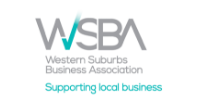The annual cost to small business owners of complying with the GST is upwards of $13 billion, according to a recent survey, adding to calls for the federal government to address business taxation in its tax review white paper this year.
Small and medium-sized enterprises spend almost $6,800 each in time (costs) complying with the GST every year, according to a survey by MYOB, with a further $2,400 in accounting fees. Across Australia’s 2 million small businesses, MYOB said, the estimated time cost of compliance was in the vicinity of $13.5 billion.
The GST is responsible for around two thirds of the total time devoted to tax compliance for small businesses, taking around 84 hours a year out of a total of 131 hours, the report found.
Accounting firm Bentleys’ recent ‘Voice’ survey added further to the argument for reform, with 35 per cent of SMEs surveyed nominating the complexity of the tax system as the biggest hurdle to understanding it.
The Voice survey also found 21 per cent of business owners believed business taxes were either ‘very hard’ or ‘extremely hard’ to understand.
In contrast, 42 per cent found business taxes ‘very’ or ‘extremely easy’ to understand, with Bentleys indicating that smaller businesses were more likely to have trouble.
Modelling by KPMG Econtech for the Henry Review of Taxation in 2010 found that the marginal excess burden of the GST was around 8 per cent – meaning the cost of raising a dollar of revenue through it was around $1.08.
The methodology is widely used by economists to determine which taxes are of the lowest cost to the nation’s economy, with the GST generally considered most efficient.
However, the results from the two surveys show that more work could be done to simplify GST reporting.
Bentleys managing director Philip Rix said taxation complexity was a burden on small businesses, particularly micro businesses.
“Given that SMEs employ two thirds of the private sector employees in WA, I think we need policies to nurture and support SMEs in general, but particularly at the embryonic stage,” he said
Mr Rix, who has been an accountant for more than three decades, highlighted industrial relations and tax compliance as two key areas of reform that would help small businesses.
“Despite the words that are spoken, I’m seeing compliance with government regulation not reducing at all,” Mr Rix said.
“In 2000 we had the introduction of the business activity statement, and the idea there was to consolidate all the necessary taxes and returns on to one bit of paper.
“But the rules surrounding how some of those calculations are made – you’ve still got to collate the information in order to put the number on the BAS.
“It does take quite a considerable amount of time to actually capture that information.”
He said another example was fringe benefits tax, which is levied for the period from April 1 to March 31. “In order to do that return you have to go back to the records of those two financial years,” Mr Rix said.
Source: Business News Western Australia
Originally published 6 March 2015







